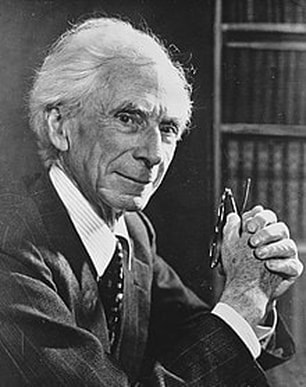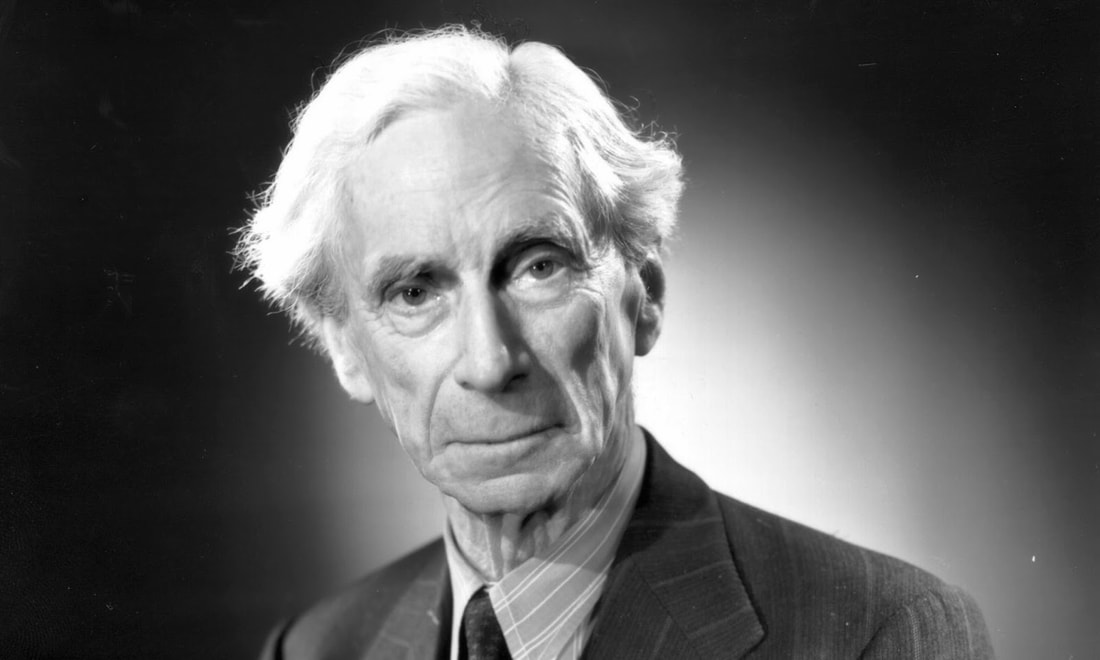|
Bertrand Russell’s first book was published in 1896. It was called German Social Democracy and consisted of six lectures given by the future Lord Russell at the London School of Economics. In 1965 Russell called it “an historical document in which a former writer comments on a former world.” He means that he no longer was “an orthodox Liberal” as he was in 1896 and that the German Social Democrats were no longer orthodox Marxists. The first lecture, “Marx and the Theoretic Basis of Social Democracy”, is a critique of Marx’s philosophy and his economics. Although Russell soon gave up Liberalism, he remained critical of Marxism as a philosophical system all of his life. The paper I am writing is not an analysis of Russell’s views of Marxism as he expressed them over a long and fruitful life, but is restricted to what he has to say in this first lecture of 1896. I think we will find that this first essay of Russell’s on Marxism misrepresents Marx’s views and is full of unwarranted criticisms. A feature of Russell’s criticisms of Marxism throughout his life. I hope the reader will understand Marxism better from this critique of Russell. I should remark that I am going to substitute the term "Marxism" for Russell's "Social Democracy." One of the first observations Russell makes is that Marxism "is a complete self-contained philosophy of the world and of human development; it is in a word, a religion and an ethic." Russell had a dim view of "religion" and using this loaded term, with connotations of supernaturalism, is an attempt to poison the well with regard to Marxism. Marx and Engels likened their views to science not religion. They had, as did Russell, no brief towards religion. But, religion aside, there is a Marxist worldview that developed in the nineteenth century, based on a scientific materialist methodology adapted to the study of economics and sociology. The basis of this methodology is, as Russell points out, Marx's adaptation of the Hegelian dialectical method for the purposes of a materialist economic and historical interpretation of social life as well as the natural world. Russell quotes from the preface of the second edition of Capital to give us Marx's view of the role of the dialectic in revealing a world in change and flux which Marx says is "an abomination to bourgeoisdom and its doctrinaire professors ... because it reveals every historically-developed social form as in fluid movement, and therefore takes into account its transient nature not less than its momentary existence...." That is a powerful quote from Marx and goes a long way in explaining the current economic disintegration of "capitalism" as well as other transient social forms, such as the Maoist state (i.e., the Cultural Revolution) in China and of the CPSU in the Soviet Union-- none of which are or were immune to the "fluid movement" of the dialectic that accounts for only a "momentary existence" allotted to historically developed social forms. This quote also should not leave us surprised that Russell did not remain a Liberal nor that the German Marxism of 1896 mutated into the German Social Democratic Party of 1965 (and 2022 for that matter). Russell makes an elementary, and common, mistake when he refers to Marxism as a species of "economic determinism." He says that "the great leading idea of Marx's view of history" is that "all branches of human activity-- are in the last resort, determined by economic causes." Marx and Engels went out their way to disabuse their followers of the notion of "economic determinism." They definitely wanted to stress the importance of economics in understanding the world, but Engels wrote that he and Marx overstated the case in their early works simply to call attention to their new outlook. But neither he, nor Marx, took a determinist view of history, which they associated with "mechanical materialism" and bourgeois philosophy. Russell quotes the Communist Manifesto: "In every historical epoch, the prevailing mode of economic production and exchange, and the social organisation necessarily following from it, form the basis upon which is built up, and upon which alone can be explained, the political and intellectual history of that epoch; consequently the whole history of mankind (since the dissolution of primitive tribal society, holding land in common ownership) has been a history of class-struggles, contests between exploiting and exploited, ruling and oppressed classes." This is not a mechanical or deterministic system. It is a descriptive statement based on an empirical study of history. It outlines a research methodology. Marxism cannot predict the events of the future nor does it certify that the past could not have been different-- two things that I think a determinist would want to claim. One thing I will give Russell credit for is that it was probably not a good idea for Marx and Engels to tell the bourgeoisie that they wanted to destroy it. Here is the Manifesto again: "Communists disdain to conceal their views and their purposes. They openly declare that their ends can only be attained by the forcible destruction of all existing social order. May the propertied classes tremble before a communist revolution. The proletariat have nothing to lose by it but their chains. They have a world to conquer. Proletariat of all countries unite." Communist leaders are more circumspect nowadays. This stirring conclusion to the Manifesto will no doubt end up on somebody's list of the 10 worst ideas of Marxism. Russell, who started out calling Marxism a religion and an ethic, now contradicts himself (this is a vulgar not a dialectical contradiction) by complaining that religion and ethics are lacking in Marx's worldview. "Not a word of blame," he says, "for the cruel revolutions of the bourgeoisie, not a word of regret for the ironically-pictured idylls of the medieval world. There is no question, in Marx, of justice or virtue, no appeal to human sympathy or morality; might alone is right, and communism is justified by its inevitable victory." Marx did not believe that communism was "inevitable." The class struggle could also end in mutually assured destruction. It was not the lack of ethical and moral feeling that motivated Marx to write as he did, but fidelity to the scientific method, which does not lend itself to emoting over medieval idylls. The above is the backdrop that Russell presents before his two major critiques of Marxism and its theories. Russell will attempt to refute Marx's theory of value and his theory regarding the concentration of capital. The next installment of this article will deal with Russell's critique of the Marxist theory of value. Author
Thomas Riggins is a retired philosophy teacher (NYU, The New School of Social Research, among others) who received a PhD from the CUNY Graduate Center (1983). He has been active in the civil rights and peace movements since the 1960s when he was chairman of the Young People's Socialist League at Florida State University and also worked for CORE in voter registration in north Florida (Leon County). He has written for many online publications such as People's World and Political Affairs where he was an associate editor. He also served on the board of the Bertrand Russell Society and was president of the Corliss Lamont chapter in New York City of the American Humanist Association.
0 Comments
Leave a Reply. |
Details
Archives
May 2022
Categories |


 RSS Feed
RSS Feed